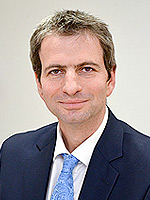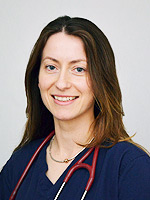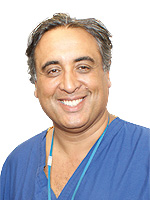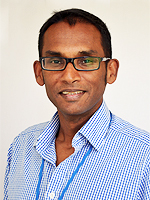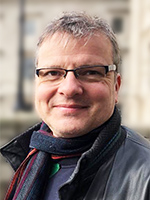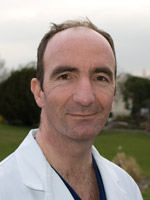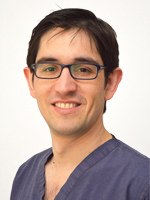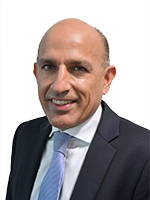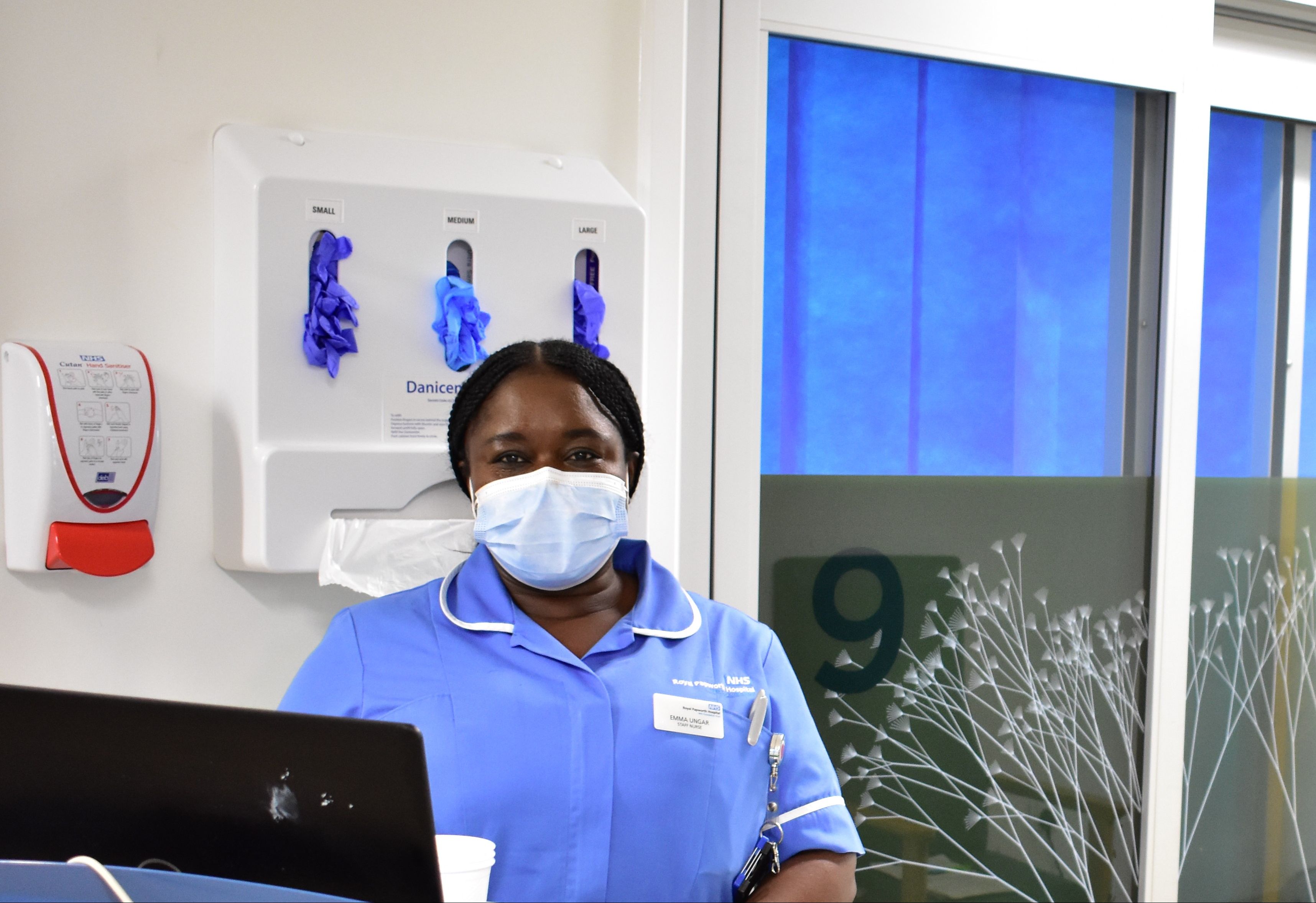About the series
The highly acclaimed series 'Surgeons: At the Edge of Life' was broadcast on BBC Two in October 2020, revealing the extraordinary and pioneering work of some of the country's top surgical teams.
In the UK, three million major operations are carried out every year - some of the most difficult ones are performed here at Royal Papworth Hospital.
The documentary shows four operations that took place at Royal Papworth, including a pulmonary endarterectomy (PEA), an 18-hour chest wall reconstruction, a double lung transplant and surgery on the aorta.
Footage was shot from fixed rigs within operating theatres in order not to distract the operating teams. Shots include close-ups of surgeons, anaesthetists and other members of the teams at work during critical moments of some of the most advanced and complex surgery carried out anywhere in the world.
Royal Papworth Hospital is the UK’s leading heart and lung hospital, treating around 50,000 patients each year. We carry out more major heart operations and more heart, lung and heart-lung transplants than any other UK centre. We are the only centre in the country for a range of specialist services including PEA surgery and Balloon Pulmonary Angioplasty (BPA).
Our new, purpose-built hospital is located on the Cambridge Biomedical Campus next to Cambridge University Hospitals NHS Foundation Trust, which runs Addenbrooke's Hospital, which also features in the series. Each episode will show one operation from Royal Papworth and one from Addenbrooke's.
The series was filmed at the end of 2019 and start of 2020 by Dragonfly Film and Television.
Catch up with the series on BBC iPlayer
Read the full press release announcing series three of Surgeons: At the Edge of Life.
In the first episode, Mr David Jenkins, Divisional Director for Surgery and Transplant, performs one of surgery’s most technically demanding – and extraordinary - operations.
Called a pulmonary endarterectomy (PEA), no other hospital in the UK offers this procedure and it will take Mr Jenkins' patient, 54-year-old grandmother Shelly, to the very edge of life.
Shelly has a form of hypertension where her body is unable to dissolve blood clots which have travelled to her lungs and are now blocking her pulmonary arteries. More and more clots are building up and without the operation she will die. The only way to remove them is to cool her body to just 20 degrees, stop her heart and drain all the blood from her body. She will be technically dead on the theatre table. Mr Jenkins admits that it does seem “counterintuitive” to make Shelly temporarily dead. “Is she between life and death? It is that in-between place”.
Mr Jenkins has just 20 minutes whilst Shelly is entirely empty of blood to remove the clots, so he needs to be fast. The cold will protect her during this time because the low temperature slows her cell function, but any longer and the lack of oxygen will damage her brain. Shelly will then need to be refilled with blood before Mr Jenkins repeats the whole process again on her other lung.
Read more about the operation and Shelly from episode 1 (no spoilers).
Catch up with episode one on BBC iPlayer
Find out more about pulmonary hypertension (PHA UK website)
At Royal Papworth, senior consultant thoracic surgeon, Aman Coonar, calls on the skills of Addenbrooke’s plastic surgeon, Charles Malata, to help him undertake a chest wall reconstruction; a complex procedure that is scheduled to last at least 12 hours.
Our patient is former builder, 59-year-old Kevin from Peterborough, who has been suffering for 17 years since having a cancerous lung removed. The cancer was cured but the cavity left in his chest has never healed and Kevin has had to live with an open hole in his back, so that pus and air can drain out of the chest cavity. The constant flow of fluid means Kevin has to change a dressing several times a day, making it impossible to lead a normal life and leaving him miserable.
To fix the cavity and close the hole in Kevin’s back, Charles and Aman must work together - alongside a 25-strong team - to take a flap of muscle and skin from Kevin’s back and use it to fill the cavity and plug the hole in his chest.
Read more about the operation and Kevin from episode 2
In the third episode of this critically acclaimed series, transplant surgeons Marius Berman and Pedro Catarino take on one of the most difficult transplant procedures at Royal Papworth; the double lung transplant. With donor organs in such short supply, there is even more pressure to execute the operation perfectly.
Their patient, 52-year-old ex-plasterer David, is urgently called into hospital when a suitable set of donor lungs become available. David suffers from a genetic disorder called Alpha-1 antitrypsin deficiency, which is destroying the air sacs in his lungs. Tragically, he and his sister Kay have already lost their older brother to the same condition, so they’re acutely aware of how urgently David needs the operation. He has already had to wait four months for a suitable donor – in another four month he’ll be too sick to survive the transplant.
The operation has to be carried out with extreme precision and they’re also up against the clock. As soon as the donor lungs have been cut from their blood supply, they start to deteriorate, so it’s vital that they are transplanted as quickly as possible.
Read more about the operation and David's story from episode 3 (no spoilers)
Catch up with episode 3 on BBC iPlayer (link to come following episode)
Find out more about alpha-1-antitrypsin deficiency (British Lung Foundation)
Find out more about alpha-1-antitrypsin deficiency (Alpha-1 Awareness)
For cardiothoracic surgeon Ravi De Silva there is a fine balance when it comes to his 75-year-old patient Maureen. She feels relatively well even though she has an enlarged aorta; the main vessel for carrying oxygenated blood to the body, but it is in danger of bursting. If it does burst it could be fatal, but the operation to fix it is also extremely high risk. In Ravi’s mind there is a clear choice; the one-off risk of the operation is worth it compared to living with a condition that could be fatal at any time.
The procedure involves replacing the aorta with a synthetic tube and it is so complicated that it needs to be replaced in two parts. First, Ravi must remove and replace the aortic root which comes out of the heart. Then he must replace the next section, the aortic arch, which has branches that provide blood to the brain and arms. But to remove this section, he has to clamp off the blood supply to Maureen’s lower body. Once that happens, Ravi has just 30 minutes to replace the arc, otherwise the lack of blood to the lower body could result in serious damage to Maureen’s organs and more importantly her spine, causing paralysis.
Ravi completes this part of the operation with just minutes to spare. But when he finally starts to connect the smaller branches of the synthetic aorta to the carotid arteries which lead to her brain, one of them starts to shred. If he can’t get the stitches to hold, it will put the whole operation and Maureen’s life in jeopardy.
Read more about the operation and Maureen's story from episode 3 (no spoilers)
The official trailer for series three of 'Surgeons: At the Edge of Life'
Consultants involved in the series
See the full list of surgical careers available in theatres at Royal Papworth Hospital.
-
Mr Marius Berman MD FRCS (CTh), Consultant Surgeon
Mr Marius Berman is a cardiothoracic surgeon providing the full range of cardiac surgical procedures in adult patients. He is the Surgical Lead for Transplantation and Mechanical Circulatory Support at Royal Papworth Hospital. He is also Associate National Clinical Lead for Organ Retrieval at NHS Blood and Transplant.
Mr. Berman is the consultant lead for patient safety in surgery and transplantation. He is also a member of the heart and lung transplant team, and has an extensive experience of the use of mechanical circulatory and respiratory support. In particular, he has used a large number of different artificial pumps to support the heart, both in the short and long terms. In 2006, Mr. Berman started a post CCT fellowship in adult heart and lung transplantation, followed by a fellowship in pulmonary endarterectomy surgery at Royal Papworth Hospital.
His research focus is on the improvement of outcomes for transplantation, and in the development of a new approach to circulatory support.
-
Dr Christiana Burt, Consultant Anaesthetist
Dr Christiana Burt trained in medicine at the University of Cambridge and completed specialist training in anaesthesia in the East of England Deanery UK.
She completed a clinical fellowship in cardiac anaesthesia and intensive care at the Toronto General Hospital in Canada. She has been a substantive consultant in anaesthesia at Royal Papworth Hospital since January 2013.
Dr Burt has subspecialty interests in teaching, risk management and medical law (Masters qualification) and is one of the trust’s Medical Examiners. She was the department Royal College of Anaesthetists College Tutor for training and fellowships from 2017-2020 and has now handed this role over to Dr Ganesh Ramalingam.
-
Mr Aman Coonar, Consultant Surgeon
Mr Coonar qualified as a doctor in London. His general surgery and cardiothoracic surgery training was at Guy's, St Thomas's, King's, Royal Brompton and the London Chest Hospitals.
In 2005-2007, Mr Coonar worked at the Toronto General Hospital in Canada and took fellowships in general thoracic surgery and lung transplant surgery.
Mr Coonar has been a consultant at Royal Papworth Hospital since 2007 and his practice is in pure thoracic surgery. He works closely with a large team including other surgeons, specialist nurses, radiologists and physicians.
Mr Coonar was appointed President of the Royal Society of Medicine Cardiothoracic Section in December 2013.
He handles benign diseases and cancer. His main clinical interests are:- minimally invasive surgery (video-assisted, endoscopic and others)
- lung cancer surgery (including advanced cases and patients with poor lung function)
- mesothelioma surgery
- chest wall surgery
- airway surgery
- lung volume reduction surgery
- surgery for thoracic sarcoma
- resection of metastatic cancer to the chest
Mr Coonar has published several research papers and book chapters, some of which have received awards. -
Mr Ravi De Silva, Consultant Surgeon
Mr De Silva returned to Royal Papworth Hospital after practicing as a consultant in Oxford University Hospital for 4 years. He had previously spent 6 years training at Papworth, and so came back to a familiar environment in which he is able to pursue his clinical and research interests.
Mr De Silva has considerable expertise in adult cardiac surgery, with a particular interest in surgery of the aorta, minimal access surgery, aortic valve repair surgery, hybrid and off pump revascularization. He has a keen interest in education and training, and since 2019 has been the Director of the East of England cardiothoracic training programme which is recognised as the best surgical training programme in the UK for the last 3 years. He has published widely, and has particular research interests in the inflammatory effects of cardiopulmonary bypass, the pathogenesis of nitric oxide in cardiovascular disease, and safety in cardiac surgery.
-
Dr Florian Falter, Consultant Anaesthetist
-
Mr David Jenkins, Clinical Director of Surgery, Consultant Cardiothoracic Surgeon
Mr Jenkins graduated in 1989 and trained in surgery in London. He completed a period of research into myocardial protection at the Hatter Institute at UCL and was awarded the degree of Master of Surgery from The University of London.
Mr Jenkins trained in cardiac surgery on the west London rotation and was appointed as consultant at Royal Papworth Hospital in 2001. He has experience in all aspects of adult cardiac surgery. Specialist experience includes heart and lung transplantation, mechanical circulatory support including ventricular assist devices and ECMO (artificial hearts and lungs).
Mr Jenkins is the lead surgeon for the national pulmonary endarterectomy programme. His research interests are related to pulmonary hypertension and pulmonary endarterectomy surgery.
-
Dr Guillermo Martinez, Consultant in Cardiothoracic Anaesthesia & Intensive Care and Clinical Lead for Theatres
Dr Martinez is a Cardiothoracic Anaesthetist and and Clinical Lead for Theatres.
After graduation from medical school at the University of Cordoba in Argentina, Dr Martinez completed his specialist training in General Internal Medicine in Buenos Aires, before undertaking training in Anaesthesia and Intensive Care Medicine in Madrid. After completing a Fellowship in Cardiothoracic Anaesthesia at Papworth, He was appointed as a Consultant in 2011.
Dr Martinez' clinical interests include anaesthesia for minimally invasive thoracic surgery, heart and lung transplantation, and pulmonary thromboendarterectomy. He is also the Anaesthetic Lead for the Aorta Working Group.
Dr Martinez has a strong interest in peri-operative transoesophageal echocardiography, and he is a member of the Certification Board of Transoesophageal Echocardiography for the the European Association for Cardiovascular Imaging (EACVI).
-
Mr Narain Moorjani, Consultant Surgeon
Narain Moorjani is a cardiothoracic surgeon providing the full range of cardiac surgical procedures, including coronary artery bypass grafting and aortic valve replacement. He forms part of the specialist valve group, performing complex mitral valve repair surgery, as well as surgery of the thoracic aorta.
He also performs procedures to control abnormal heart rhythms, as well as minimally invasive cardiac surgery (including valve surgery through small incisions and coronary surgery without the use of the heart-lung bypass machine). He was the first surgeon to introduce minimally invasive cardiopulmonary bypass to Royal Papworth Hospital.
Narain Moorjani came to Royal Papworth Hospital having previous worked as a consultant cardiac surgeon at the Royal Brompton Hospital, London and Assistant Professor in Cardiothoracic Surgery in Philadelphia, USA. Prior to that, he completed a research doctorate of medicine (MD) at the University of Oxford and National Heart and Lung Institute, investigating the genes involved in the development of heart failure.
His research interests are currently focussing on the genes responsible for enlargement of the thoracic aorta.In addition, he has published several international best-selling, award-winning cardiac surgery textbooks, including 'Operative Mitral and Tricuspid Valve Surgery', 'Key Questions in Cardiac Surgery' and 'Cardiac Surgery: Recent Advances and Techniques', with further cardiothoracic surgery textbooks due out soon.
More recently, he has been awarded the National Cardiac Benchmarking Collaborative (NCBC) Cardiac Service Improvement and Best Practice Award and 2nd place in the National Patient Safety Awards for the introduction of the Papworth Haemostasis Checklist, which has significantly reduced the amount blood transfusion required and number of patients returning to theatre for bleeding following cardiac surgery.
From an educational point of view, he has developed a unique portfolio of award-winning, simulation-based, curriculum-aligned, cardiothoracic surgery training courses, which are run in Great Britain and Europe.

